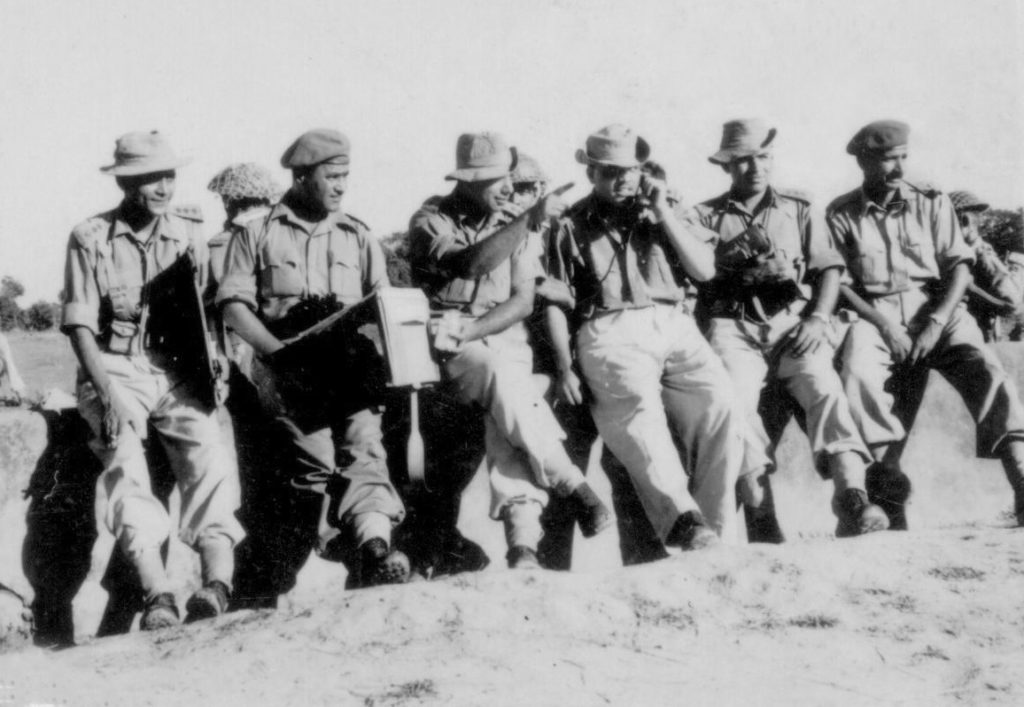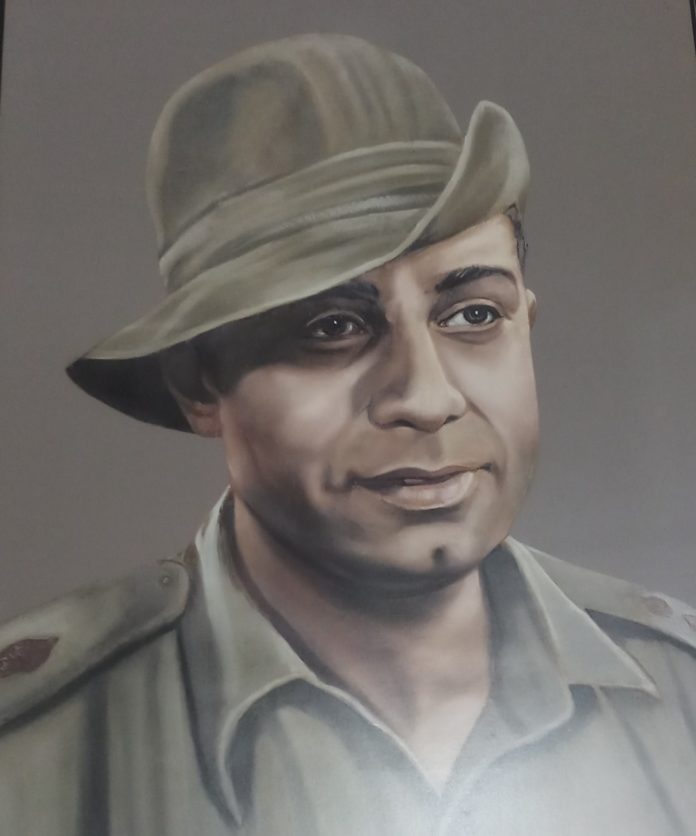My father was posted from GHQ to East Pakistan Rifles (EPR) in early 1962 as Sector Commander EPR Sylhet Sector. This Sector comprised the Districts of Sylhet, Comilla, Chittagong and Chittagong Hill Tracts with HQs at Sylhet. I was then 16, studying in Murari Chand (MC) College Sylhet when my father went to command the Asalong Mouza Operations against Indian encroachment across the Feni River in the Chittagong Hill Tracts. My father never talked about the “Operations” except sometimes to draw my attention to some “lessons learnt”. When my mother died, I discovered the “ASALONG MOUZA” papers when sifting through her belongings. Both the official war diary and his personal diary for the period make very interesting reading, this was the biggest operations conducted since Dir and Kalat (1958) till Rann of Kutch (1965), involving a battalion plus of EPR and in support an Army infantry battalion, in very tough, forested and mountainous terrain. Director General EPR was Brig Mohammad Ahmed, MC, formerly CO 1 E Bengal and author of the book “MY CHIEF”. His son, Col (Retd) Salman Ahmed, joined 32nd PMA Long Course in May 1963, and was also commissioned into 1 E Bengal in September 1965. My father had commanded 2 E Bengal in 1956-58 and I joined 34th PMA Long Course in May 1964, being commissioned into 2 E Bengal in October 1965. This was the start of the first generation/second generation in the BENGAL TIGER family. Starting with the Senior Tiger/Junior Tiger competitive “animosity” before we even joined the Army, we have since disagreed about everything under the sun, but remain very good friends and are colleagues (in the same business firm) even today. Salman is easily one of the most outstanding soldiers ever produced by Pakistan, the most combat experienced. He was an infantry platoon commander/company officer in the 1965 War, then as an SSG company commander in many battles in East Pakistan (before shifting to West Pakistan) in 1971, in Balochistan Operations 1973-75, in charge of the southern sector of Afghanistan during most of the Afghan Mujhahideen campaign (1982-89) against the Soviets. He is the one who took Sandy Gall into Afghanistan for the documentary “Allah against the Gunships”. Salman is not one of those GT Road warriors who tend to talk a lot about their “war” experiences (driving up and down the GT Road) but have never heard a shot being fired in anger. Many others managed credit for Salman’s exploits, he refuses to talk publicly about them. Incidentally, Commander Signals in EPR during 1962-64 was Col ZAHID ALI, his daughter BANO works with us in our travel section today, a remarkable maintenance of relationships of “army brats” for almost five decades. Gen (then Maj) Rahimuddin Khan, formerly Chairman JCSC, was then the GSO-2, HQ EPR, attempts to contact him to get his apparent input failed. With regard to another officer, my father mentions “in gentlemanly fashion” about his lack of courage, no coincidence that in 1971 this officer as a CO of a battalion surrendered his Battalion HQ (he was the only one) in East Pakistan leaving all four of his rifle companies (and HQ Company) to keep on fighting till the Cease-Fire on Dec 16, 1971. Before thinking about publishing the extracts I gave photocopies to some friends and colleagues to read, all of them advised publication. It’s not a great manuscript but is a remarkable one considering its candid forthrightness. Asalong Mouza was considered a very successful operation against the Indians, after the 1947-48 Kashmir War the only one, my father recommended some gallantly awards for his men, there were all duly awarded. In recognition of their valour, EPR made the force into a permanent ASALONG MOUZA battalion headquartered at Peelkhana, Dhaka.

Salman who was studying in Notre Dame College in Dhaka at that time, felt from his father’s demeanour at home that the Army did not want to give credit to the EPR despite the fact that EPR was 100% officered by officers on deputation from the Army. Instead of collecting plaudits and/or rewards, my father became the focus of jealousy, which in Pakistan is not surprising since merit is a disqualifier in our society. He was a very remarkable human being who was far ahead of his time (the way he brought up and educated my late sister and myself was nothing short of amazing). Subsequently in 1964 he suffered the first of his many heart attacks, thereby cutting short his army career. (During this time I was in the Academy being interviewed by GHQ for RMA Sandhurst and he kept this from me for six months so as not to upset me). His early retirement when he should have got accelerated promotion was really tragic for a dedicated professional soldier. It is most unfortunate that circumstances (and motivated people) conspired not to recognize the man’s brilliance, quiet courage and absolute dedication. Some may accuse me of taking advantage of the “Defence Journal” to project issues and personalities which should remain personal, as a son I owe it to my father to give him in some small way after his death (in 1983) the due recognition he should have received during his lifetime.




